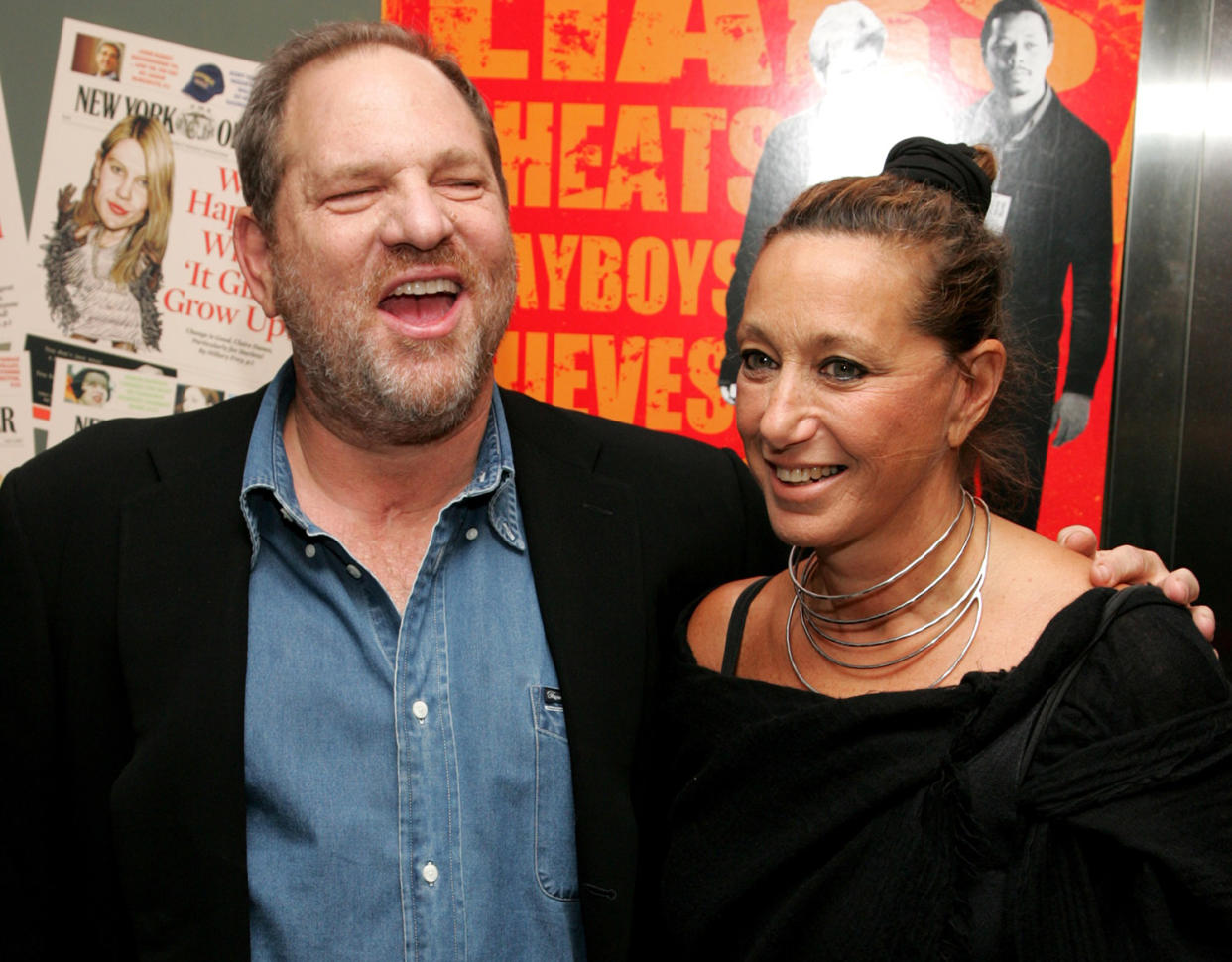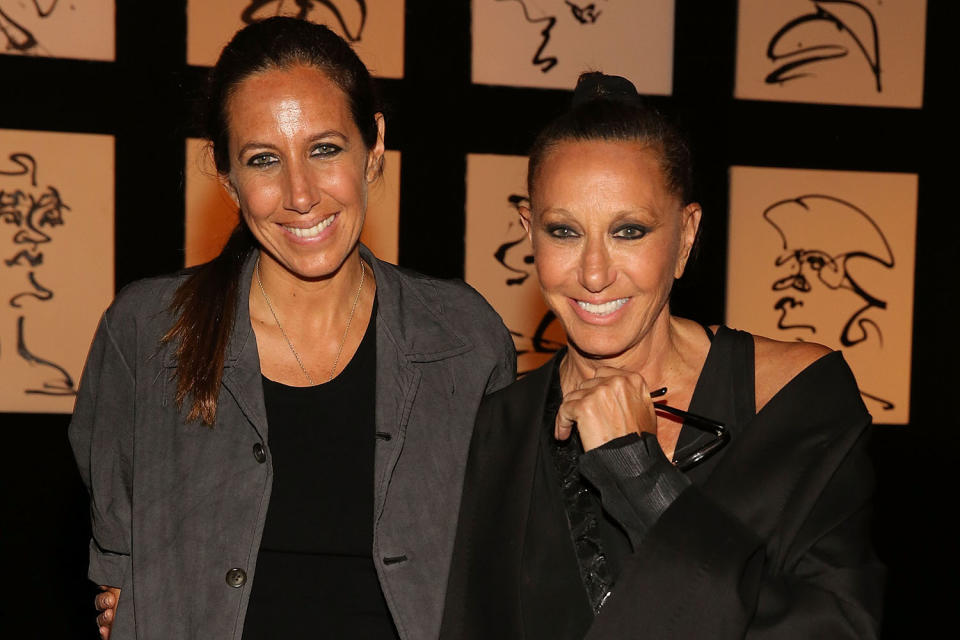Donna Karan's 'horrible' Harvey Weinstein defense harms humankind, according to experts

When asked about the Harvey Weinstein sexual harassment allegations on a red carpet on Sunday, Donna Karan considered the part women played in his decades of abuse. “How do we present ourselves as women? What are we asking for by presenting all the sensuality and all the sexuality?” the fashion designer asked a reporter, according to the Daily Mail.
Karan continued, “I think we have to look at our world and what we want to say and how we want to say it as well. You look at everything all over the world today and how women are dressing and what they are asking by just presenting themselves the way they do. What are they asking for? Trouble.”
The fashion designer, a longtime friend of Weinstein, felt immediate backlash for her comments that seemingly insinuated that responsibility for the alleged assaults committed against the women — his company had settled at least eight suits over two decades, according to the New York Times report, in addition to the allegations of 13 additional individuals who came forward on Tuesday in a New Yorker story (Angelina Jolie and Gwyneth Paltrow also reported inappropriate treatment in response to the reports) — were their fault.
Following the outcry — most notably from Rose McGowan, who tweeted, “Donna Karan you are a DEPLORABLE Aiding and abetting is a moral crime. You are scum in a fancy dress” — the 69-year-old issued an apology. “I have spent my life championing women,” Karan said in a statement Monday. “My life has been dedicated to dressing and addressing the needs of women, empowering them and promoting equal rights.”
Despite her admission, the fact that Karan makes clothing (she stepped down from the eponymous company she founded in 1984 in 2015), and thus is someone in a position of power in influencing exactly how women present themselves to the world, the inherently complicated part of Karan’s original comments make the situation that much more nuanced.
As social psychologist Laura Niemi, PhD, a postdoctoral researcher at Duke University, explains to Yahoo Lifestyle, what Karan “gets wrong” in her remarks is her notion that what women wear and adorn themselves with speaks for them. “Only our words speak for us,” says Niemi. She adds, “Nevertheless, the myth that victim actions can somehow remove perpetrator culpability persists.”

Zoё D. Peterson, Ph.D., the director of the Sexual Assault Research and Education Program at the University of Missouri-St. Louis, echoes this sentiment, stressing the fact that “women are never ‘asking for’ sexual harassment or sexual assault by how they dress.” She continues, “Women dress in sexy and revealing clothing all the time for all kinds of reasons, but most men don’t feel compelled to harass or assault every woman who is dressed in revealing clothing. So I think that we can conclude that sexy clothing is not to blame for sexual harassment; clearly, the harasser is to blame.”
In fact, Peterson notes, it’s insulting to both women and men to even imply that sexual harassment happens because of outfits. She explains, “It gives the message that it is acceptable to belittle and blame women when they experience harassment. It also gives the message that men cannot control their own sex drive or be responsible for their own behavior in the presence of sexy clothing. Given that this myth demeans both women and men, we should all be motivated to reject this type of victim-blaming myth.”
Niemi says that the way we use language can contribute to the continued confusion and perpetuation of this dangerous mythology. She explains that though incidents of harassment involve two people — one harasser and one person who was harassed — they are too often “redescribed” by others as an event in which someone “got herself harassed.”
“In that construction the agent of harassment has been disappeared, and responsibility for the harassment has (typically, inappropriately) been placed” on the person who has been harassed, Niemi explains, emphasizing that this dynamic is “analogous” to suggesting that someone was “asking for it.”
In attempting to defend her friend Weinstein, Niemi says, Karan opted to ignore the connection between the crime of sexual harassment as being part of a larger cultural problem by relying on a “tired, old myth that denies that culture problem and harms all of womankind — really, humankind.”
Sherry Hamby, PhD, a research professor of psychology at Sewanee, the University of the South, and the founding editor of the American Psychological Association’s (APA) journal Psychology of Violence, adds that Karan’s comments are “horrible, of course,” but more significantly are a “good example of common primitive defenses against threats. We all want to believe that we can control our exposure to danger, and victim blaming supports the fantasy that ‘it can’t happen to me.’”
She continues, “These kind of comments also arise from our simplistic views of perpetrators. The media often present sexual offenders as monsters, and that makes it hard to believe that anyone with social or professional skills can be a perpetrator. These simplistic — and false — stereotypes help offenders, because so many of them don’t match the ‘creep in a trenchcoat’ stereotypes. Some victims might miss warning signs because of these false stereotypes.”
But that’s not the only problem with victim-blaming, Hamby says.
“Victim-blaming comments make it harder for women to feel comfortable in their bodies, which they should not have to hide. Of course, victim-blaming comments also make it that much harder to come forward, and anything that contributes to silencing victims helps perpetrators,” she notes.
Read more from Yahoo Lifestyle:
Follow us on Instagram, Facebook, and Twitter for nonstop inspiration delivered fresh to your feed, every day.

